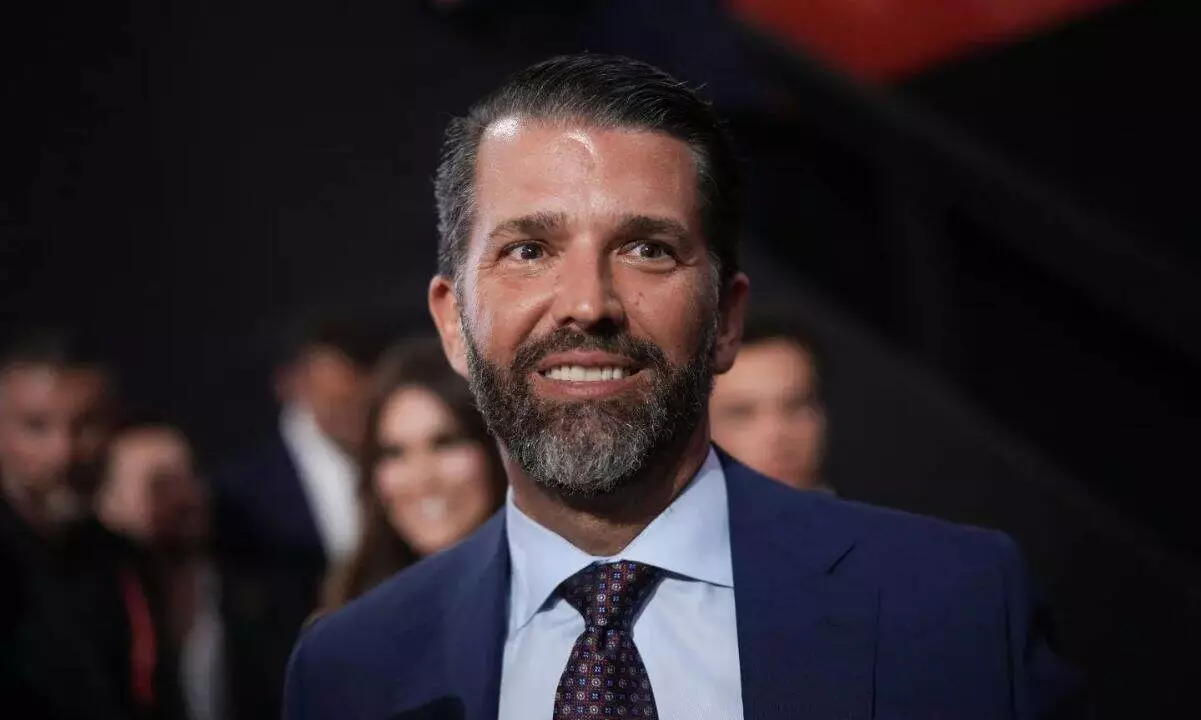The tangled web of the Trump family encompasses political endorsement, branding leverage, and now, an ambitious thrust into the cryptocurrency realm. However, the recent announcement of the “Trump Wallet” seems to showcase a disconnect amongst its members, raising eyebrows about their coordination and understanding of burgeoning business developments. Donald Trump Jr. was quick to distance himself and his family from this initiative, emphatically declaring their lack of involvement, which only serves to highlight deeper issues surrounding accountability and brand management.
In a digital age where authenticity can make or break an enterprise, witnessing the sons of a former president publicly disavow a product that bears their family name is undoubtedly jarring. Why the hesitation? Is it simply a matter of bad publicity, or do deeper ethical considerations come into play? The more we peel back the layers of this situation, the more it suggests that the relationship between political figures and commercial products can often be murky at best, particularly in the realm of emerging technologies like cryptocurrency.
Magic Eden’s Bold Move and Its Implications
The involvement of a significant player like Magic Eden in the development of the Trump Wallet only magnifies the incongruity of the business venture. Positioning it as “the First and Only Crypto Wallet for True Trump Fans” feels like pandering, evoking strong negative sentiments among crypto enthusiasts who yearn for authenticity and actual utility over mere branding. In leveraging a political figure’s name, the company risks alienating a crucial segment of the crypto market that values decentralization far more than opportunistic branding.
Moreover, the initial offering also touts a $1 million giveaway and a promising waitlist. Such promotional tactics reveal a troubling intersection of politics and market gimmicks, cleverly veiled as engagement strategies. The enthusiasm of potential users may mask a deeper concern: will individuals be more motivated by the allure of free money than the actual viability of the product? This kind of manipulation erodes trust, something that is already in short supply in both the cryptocurrency and political arenas.
Legal Threats and Their Repercussions
As the dust settles, Eric Trump escalated the matter by hinting at legal actions against the creators of the so-called Trump Wallet. His statements not only reflect an acute awareness of reputational risk but also illuminate the frantic attempts of a family grappling with its entrepreneurial image. The phrase “no deal for this product” flutters about like a red flag, suggesting that caution is in order when associating with ventures that might lack credibility, especially when the family has already been scrutinized for questionable business practices.
For any business hopeful, the idea that one’s brand could be used improperly by third parties is daunting. Yet, the suggestion of legal pursuits speaks to a larger cultural conflict: how do we protect brand integrity without stifling innovation? The crypto sector is flourishing precisely because it often operates outside traditional regulatory frameworks. Navigating the balance becomes a tightrope for the Trumps, who stand to gain if they can manage to align their business interests with public expectations.
The Broader Implications for Cryptocurrency
Stepping back from the drama, this entire debacle casts a long shadow on cryptocurrency’s relationship with political figures. The concerns voiced by figures like former White House Communications Director Anthony Scaramucci, who pointed out potential pathways to corruption, are not to be taken lightly. Legislative inquiries into these initiatives signal a growing unease about the broader implications of political figures entwining themselves with the volatile world of digital currencies.
Questions abound regarding the ethicality of fundraising through such means and whether it opens doors to foreign influence and exploitation of political power. To those who lean toward center-right liberalism, this turmoil not only raises ethical eyebrows but also serves as a clarion call for rigorous oversight and the importance of maintaining clear boundaries between governance and commerce. For every potential benefit that might arise from the intersection of politics and cryptocurrencies, there lies an equal risk of undermining the very fabric of democracy and fair market practices.
In essence, while the Trump Wallet saga seems comical at first glance, it reveals intricate patterns of ethical dilemmas and market pressures that are far too serious to ignore. The big question remains: will the politics of opportunity skew the future landscape of cryptocurrency or guide it toward more robust ethical standards? In an era marked by blurred lines, clarity has never felt more essential.















